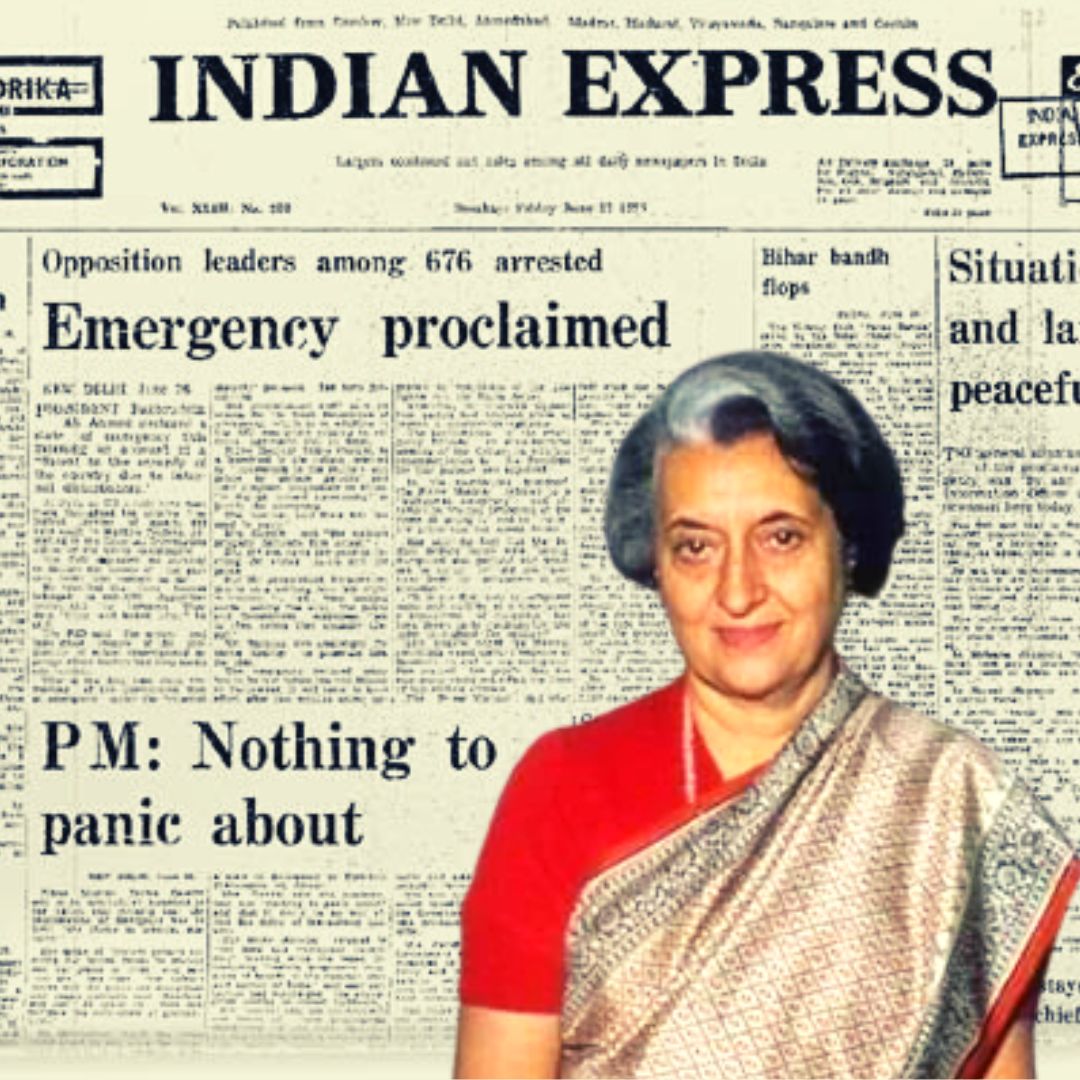
Image Credits: The Indian Express, Facebook
The Emergency! Reliving Indian History's Darkest Hour 47 Years Later
Writer: Tashafi Nazir
For most people, journalism sounds hectic and chaotic. For her, it's a passion she has been chasing for years. With an extensive media background, Tashafi believes in putting efforts on presenting a simple incident in the most interesting way.
India, 25 Jun 2022 9:33 AM GMT
Editor : Snehadri Sarkar |
While he is a massive sports fanatic, his interest also lies in mainstream news and nitpicking trending and less talked about everyday issues.
Creatives : Tashafi Nazir
For most people, journalism sounds hectic and chaotic. For her, it's a passion she has been chasing for years. With an extensive media background, Tashafi believes in putting efforts on presenting a simple incident in the most interesting way.
Today marks the 47th anniversary of the Emergency, which is regarded as a dark phase in independent India's history as this period was marked by stifling of dissent, unbridled state incarceration, and government crackdown on civil liberties.
India handled the world's most dreadful COVID-19-like pandemic admirably in the 21st century. Forty-seven years ago, just like COVID, the country's democracy was under the world's most prolonged lockdown.
However, it was done for reasons unrelated to the general public or India's involvement in any war, rather than to save lives. Even the most basic rights were denied to ordinary people.
Today marks the 47th anniversary of the Emergency, a historically relevant phase in India's years. On this day in 1975, an Emergency was imposed in India by then-president Fakhruddin Ali Ahmed on the recommendation of the Indira Gandhi-led Congress government.
The Emergency remained in force for 21 months, from June 25, 1975, to March 21, 1977, and is one of the highly-debated chapters in academic and political circles of modern Indian history to date.
According to Hindustan Times, the Emergency is often regarded as a dark phase in independent India's history as this period was marked by stifling of dissent, unbridled state incarceration, and a government crackdown on civil liberties. There were reports of human rights violations and the press being censored to a repressive extent.
Article 352 of the Indian Constitution proclaims that the President can declare a National Emergency if the country's security is at stake and is threatened by either war, external aggression, or internal disturbance/armed rebellion.
How Was The Emergency Declared?
On the night of June 25, within hours of dialogue between Indira Gandhi and Fakhruddin Ali Ahmed, a National Emergency was declared. Multiple opposition leaders were arrested, News18 reported.
Reportedly, the government allegedly cut the power supply of newspapers and media houses in Delhi so that no word gets out, and the next morning, Indira Gandhi, announced the Emergency on All India Radio.
Jayaprakash Narayan was a leader and activist in Bihar who led massive protests against the Indira Gandhi-led government before 1975. He had called for a total revolution to reform the system and fight against corruption and inflation. He held PM Gandhi responsible for all the problems the country faced.
On June 12, 1975, Allahabad High Court held Indira Gandhi guilty of electoral malpractices and banned her from holding any public office for six years. Her election from Uttar Pradesh's Rae Bareli constituency was annulled in the 1971 Lok Sabha elections. After this, Indira Gandhi appealed to the Supreme Court and continued as Prime Minister.
However, Jayaprakash Narayan intensified the protests for her ouster from office and declared to hold a rally at Delhi's Ramlila Maidan on June 25.
Over 1 Lakh People Were Arrested
The Emergency period in India witnessed the arrest of over one lakh people who were protesting or raising their voices against the Central government. Many opposition leaders and activists went underground, and state elections got delayed.
After the Emergency was lifted, Lok Sabha elections were held again. Opposition leaders united to establish the Janata Party, which formed the first non-Congress government in independent India. Even Indira Gandhi faced a crushing defeat in the mid-term polls held in March 1977.
 All section
All section














